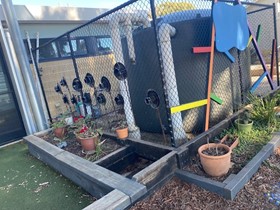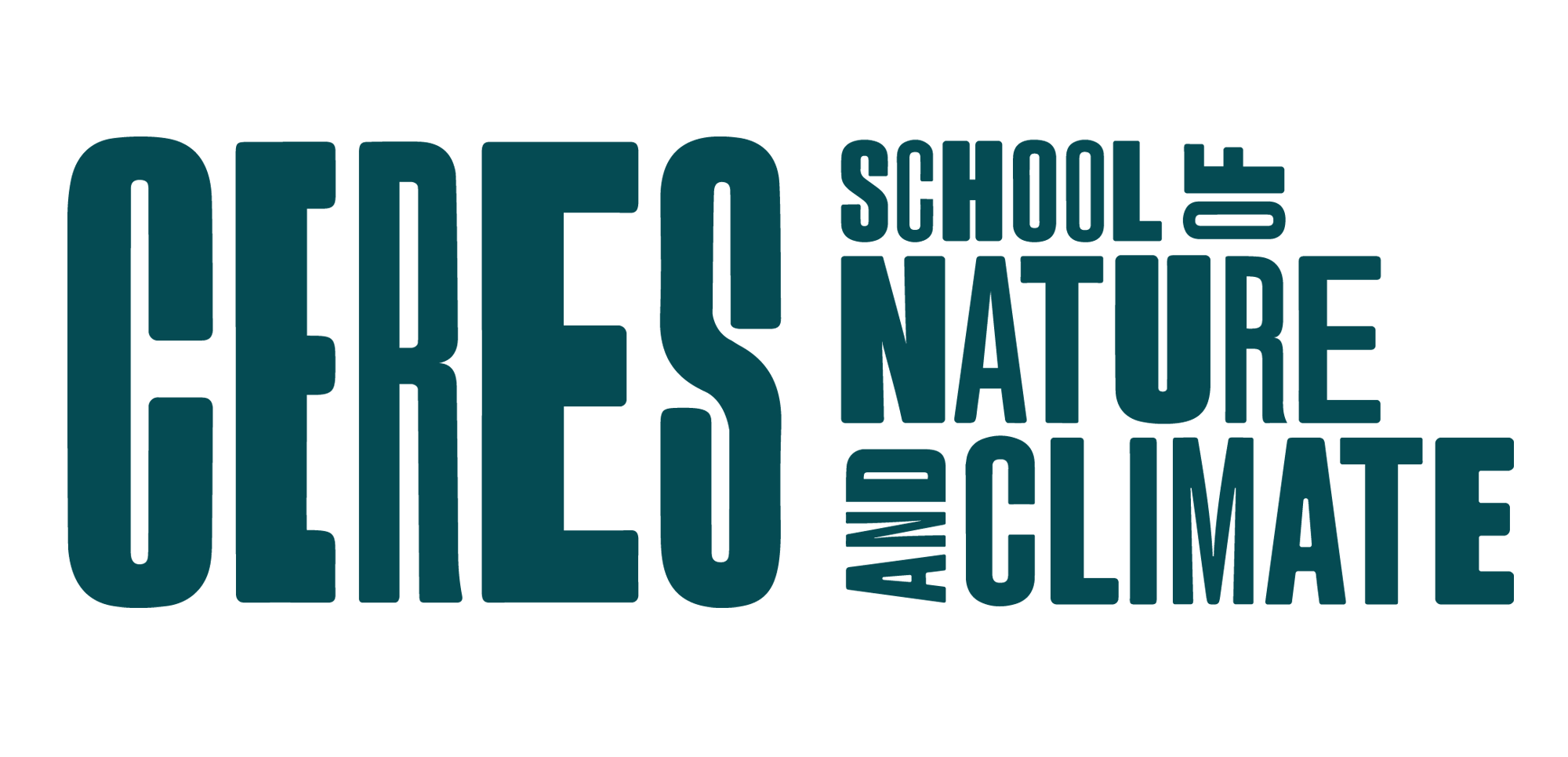Watsonia North Primary School
Sharpes Rd, Watsonia North, VIC, 3087
Phone: 94351285
Contact Person:
doupe.giovanna.g@edumail.vic.gov.au
Watsonia North Primary School
Our School Journey
A case study
From 2006 onward, Environment & Sustainability has become a priority within the WNPS School Strategic plan. Each year the Watsonia North Primary School Annual Implementation plan has included key improvement strategies for Environment & Sustainability practices. During this time we have seen the school make some significant environmental achievements. These include:
· Introduction of sustainable kitchen gardening program across all year levels.
· Involvement and participation in Schools Water Efficiency Program (SWEP).
· Commenced journey in becoming a Sustainable School – Waste Wise Program.
· Establishment of Student Action Teams which introduced rubbish free lunch days and “Walky Wednesdays.”
· Extensive professional develop for all staff with CERES.
· Conducted SWOT analysis (Strengths, Weaknesses, Opportunities, Threats) of the school’s current Environment and Sustainability Program (see attachment).
· Completion of the Water Live it Learn it Program, Wastewise Certification, Completion of AuSSI Vic Core Modules and Current Completion of Energy and Water Modules.
Complementing these achievements are curriculum programs and activities aimed at developing student knowledge and understandings relating to sustainability:
· Our Environment & Sustainability Project team vision statement: To develop student and staff knowledge about the environment and its resources and promote attitudes and practices that support environmental sustainability.
· Development of units of works and student inquiries with a focus on environment and sustainability measures and practices from Prep to Year 6.
· Provision of excursions/incursions for students to support work in classroom (eg: visits by Waste Wise Van, visits to Re-Think Centre attendance at the Edendale Kids Teaching Kids Conference).
· Provision of staff professional development sessions.
Our school is now a part of the national framework for sustainability in schools the Australian Sustainable Schools Initiative AuSSI Vic.
This year our school has engaged in completion of the Energy Aussi Vic Module.
Key achievements in this area include
· Energy reduction in workplace/daily operations such as promoting Walk to School Days, Baseline Data for Energy Use completed on SETS (School Environmental Tracking System).
· Development & Planning Professional Development for staff on energy conservation within the school. The school Participates in Resource Smart and Solar Projects.
· Energy Efficiency Management, Maintenance and Monitoring. Maintenance regimes implemented, Energy monitoring systems in place and figures on SETS, Green Purchasing Policy developed and used. Computer sleep times established. Shut down energy regimes established.
· Renewables and Energy Efficiency – Sustainable Building Design Use of green heating and cooling systems, Use of solar collection systems.
· Energy Efficiency – Retrofitting and Technology De-lamping and re-lamping (to energy efficient globes) programs implemented. Installation of 4,5,or 6 star appliances where appropriate, Security lighting clean and timing set to operate effectively. Correct use of ceiling fans.
· Learning and Teaching Classroom Action Plans and Environmental Units are included in the curriculum. Learning and Teaching in the classroom are linked to practical hands on activities. A student ‘Green Team’ is operating and take responsibility for classroom activities and program in energy and other issues.
· Whole School Community Engagement Energy policies, targets and action plans approved by School Council. Regular communication of energy activities and programs provided to the whole school through assemblies, annual school reports and newsletters. School events target being energy smart and keep energy use to a minimum.
· Student Leadership School Environment Leadership through students is instituted in the school through the WNPS Green Team initiative. This is an active operating student group. These students are involved in planning and managing energy activities and programs.
· Community and Communications Links Staff and students participate in local energy activities such as walk to school days etc. Ideas for being energy smart are included in newsletters to families.
The Green Team
Our grade turns off the computers when were not in the classroom. By Jennifer
At school we close the door, so it’s warmer, then we don’t have to use the heater. By Julia
At school in my class on hot days we turn off the lights to save energy. By Erica
At school we try to save energy as much as we can. We turn off computers when not needed as well as lights and heaters. By Patience
At school we turn off all lights and heaters before leaving the room. By Emily
In Mrs. May’s room we turn off the computers. We turn off lights. We only have heaters on when its cold. We only have the air conditioner on when its hot. By Thomas
We don’t have computer monitors on. We don’t have the fan on for the whole day. We turn the fan off when we don’t need it. Struan
In our classroom we save electricity by turning off the computers. We also save electricity by opening the curtains instead of turning on the lights. By Lewis
In our classroom we turn off the lights when we leave the classroom and at the end of the day. Brent
This year our school has engaged in completion of the Water Aussi Vic Module.
Key achievements in this area include:
· Systems Design and Management
Baseline data has been completed and entered on School Environment Tracking System SETS.
SWEP and Yarra Valley Water Audits have been undertaken and systems adjusted accordingly.
Installation of a rainwater harvesting system – three large tanks are used for watering the oval and garden beds with a further two used for flushing toilets.
Involvement and participation in Schools Water Efficiency Program (SWEP).
· Development and Planning
Professional Development for staff in water conservation water efficiency and associated themes.
Completion of the Water Live it Learn it program.
Water grants have allowed the installation of 5 rainwater tanks
Participation and Water Lili award received.
· Water Efficiency – Management, Maintenance and Monitoring
Maintenance regimes are implemented by the maintenance team for taps, toilets, dishwashers, stormwater/guttering.
Water monitoring systems and equipment is in place and figures are on SETS.
· Water Efficiency – Sustainable Building Management
No leaky taps or fittings present in school grounds according to audits conducted regularly.
Water pressure and heating adjusted to appropriate settings.
Non-water based cleaning approaches are used where possible.
· Water Efficiency – Retrofitting and Technology
Water efficient flow standards will be fitted in new buildings wherever possible.
The school has dual flush toilets and 4,5, or 6 star water efficient appliances are installed where appropriate.
· Water Efficiency – Grounds/School Yard Management
Mulching is used to support water retention and absorption and reduction in evaporation in garden beds.
All water ‘run off’ is collected under drink taps/bubblers and stored in recycled water bins for use in garden watering.
Planning for use of drought tolerant plants to suit the environment for all new gardens will be used.
Subsurface drip and recycled water is used for watering when applicable.
Minimal water is used for rinsing/washing in Art room or classrooms.
Gutters and pipes are regularly maintained to ensure rubbish does not enter pipes.
· Reuse and Recycling
5 Rainwater tanks are used to flush toilets and water gardens. Recycled water bins are used to water vegie gardens and garden beds.
· Water, Waterways and Catchments, Towards best practice.
School Curriculum units are taught with a water conservation perspective. Staff use the Water Live it! Learn it! Program by Yarra Valley Water.
Each classroom creates an environmental class action plan at the beginning of each year with a focus on Water, Energy and Waste conservation.
Environmental units are taught across the school on various Sustainability topics.
Classroom activities in water issues are linked to outcomes in VELS and practical ‘hands on’ activities.
A school program gives students the opportunity to take responsibility for classroom activities and programs in water issues.
ICT resources are accessed and used by students to increase environmental understandings.
Incursions and Guest Speakers provide students knowledge and motivation around water conservation.
Participation in the Waterwatch program planned for 2011.
· Policy and Reporting
Water policies, targets and actions plans are approved by school council.
Regular communication regarding water activities and programs are provided to the whole school and at school assemblies and newsletters.
Case studies are uploaded onto the sustainability hub.
Sustainability Education in water is a school focus/priority area in the school strategic plan.
Various School events target a range Sustainability issues/areas including water.
· Student and Parent Leadership
Students are involved in planning and managing water conservation systems (recycled water and systems).
School environment leadership is instilled in students through the ‘Green Team’ student environment committee.
This is a private group. To join you must be a registered site member and request group membership.
NEWS, PROJECTS AND RESOURCES

Sensory Garden
By Watsonia North Primary School | November 15, 2021
In 2020 and 2021, we have been focussing on completing both the biodiversity module, and have been working towards achieving our second star. Prior to completing the Biodiversity module the […]


